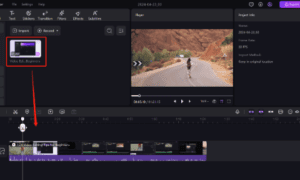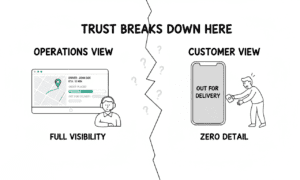Springfield, Missouri has built its identity on a quiet but steady form of progress. While it may not command national headlines, the city continues to develop a strong regional economy rooted in practical innovation, local ownership, and a grounded approach to service. Businesses here tend to last—not because of flashy branding, but because they serve real needs with consistency and clarity.
In many ways, Springfield’s commercial strength comes from how it balances industry, retail, and professional services without letting one dominate. This balance supports not only job growth but also a diverse customer base. The city doesn’t rely on a single sector to drive its economy. Instead, it hosts a mix of manufacturers, healthcare providers, small-scale technology firms, and service businesses that reflect the needs of both local residents and the wider Ozarks region.
Repair, Restoration, and Local Craftsmanship
One business that reflects Springfield’s emphasis on practical, detail-oriented work is Elite Dent Co. They focus on paintless dent repair, a process that restores vehicle panels without the need for repainting or body filler. The work requires patience and precision, not just equipment. In an area where many people drive older vehicles and prioritize value over replacement, services like these meet the market directly.
Elite Dent Co doesn’t position itself as a luxury brand. It positions itself as reliable. Their reputation depends on consistency and craftsmanship. In the local economy, those values carry weight. People in Springfield often return to businesses that provide honest assessments and repeatable outcomes. That kind of trust helps smaller service providers hold their place in a landscape that might otherwise be swallowed by national chains.
It also helps that the business model supports flexibility. Mobile repairs, quick turnaround, and hands-on owners give customers access to decision-makers. That structure reflects a larger pattern in Springfield: business relationships are often personal. Decisions aren’t made in corporate offices. They’re made in garages, shops, and offices where the people doing the work also talk to the customers face to face.
Veterinary Care with a Neighborhood Focus
Springfield also shows how smaller communities build resilience by investing in local healthcare. That investment isn’t limited to hospitals or clinics. It extends to pet care, where services can be just as important for family routines and emotional health. McClure Vet Clinic fits this model. It provides veterinary care that doesn’t feel rushed or impersonal. The clinic integrates itself into the neighborhood—not by growing as fast as possible, but by staying consistent.
The clinic’s strength comes from how it manages relationships. The veterinarians and staff treat animals, but they also recognize how those animals connect to people. In Springfield, where many residents balance work, family, and care for pets as part of daily life, that awareness sets the tone. Services that support emotional stability, even indirectly, contribute to community well-being. A clinic that knows your dog’s name, that remembers the last visit, does more than offer treatment—it reduces stress.
In a broader sense, McClure Vet Clinic exemplifies how Springfield approaches professional services. Practices remain independently owned. They grow through retention, not acquisition. Their success shows that trust and continuity often matter more than scaling fast.
Manufacturing with an Applied Science Edge
Beyond the local service economy, Springfield maintains a footprint in manufacturing and materials development. Some of this work takes place quietly, without press releases or ribbon cuttings. One example is ArmorThane, a coatings company with a strong presence in the polyurea and polyurethane sector. Their work involves applying durable coatings to vehicles, infrastructure, and industrial equipment.
ArmorThane’s model reflects how Springfield companies often stay focused on engineering outcomes rather than public image. They invest in product testing, application training, and field performance. Much of their customer base includes contractors and facility managers who prioritize protection and performance. The coatings are used to prevent corrosion, seal surfaces, and extend the life of equipment.
This kind of work doesn’t fit easily into conventional tech categories, but it reflects applied science in action. Materials development, chemical engineering, and mobile deployment all come into play. In that sense, companies like ArmorThane show how innovation doesn’t always happen in software. Sometimes it happens in spray rigs and job sites, where results are measured not by screen time but by how long a surface holds up under stress.



































